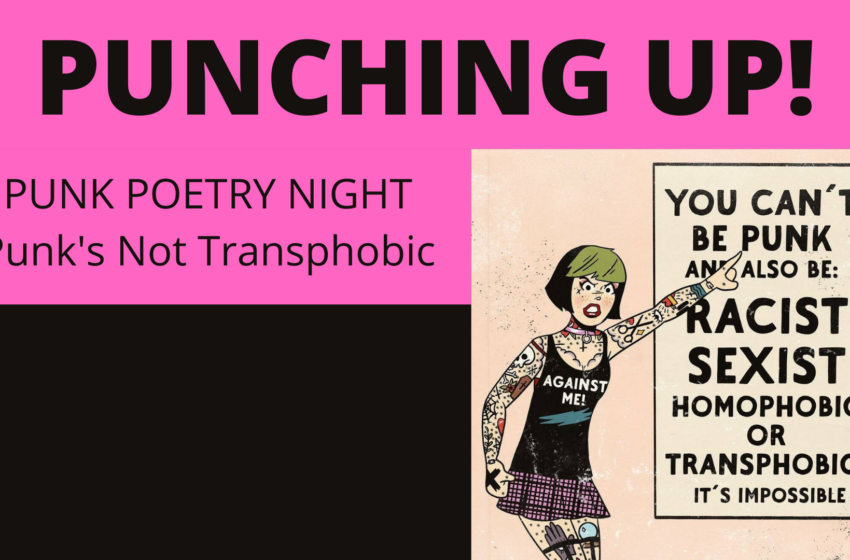
Punching Up: My Experience at a Punk Poetry Night
It is significant to see that the Anglophonic punk culture of the 70s and 80s is still beating under the surface of Leeds. “It’s about people coming together to share their love and anger” is written on the leaflet, as I headed into a warehouse-type room behind Wharf Chambers. And this was true; the small dozen of people who joined me, although lacking in numbers, made up for it in community spirit. There was a feeling of support as they shared their experiences of being neurodivergent, non-binary, trans, in rehab, or a racial minority in the form of verse. This was a particularly auspicious night to go as the political themes at the forefront of Punk subculture escalated at the same time as the recitals. Truss’ cabinet was falling apart; another ministers’ resignation was announced after each poem. The left-wing audience relished it.
*
The main acts, Rick Dove and Crow Rudd, both published poets and Grand Slam champions, bring the room to an attentive silence. Crow Rudd’s poems, a detailed dive into their feelings as non-binary person and a vulnerable account into their mental health battles, resonate with the largely queer audience. Despite this, Rudd keeps their charismatic energy throughout their set, their optimism shining through as they highlight their satisfaction in the small things that bring them joy and a reason to keep on going.
Rick Dove shares his experience as a black man and the first time he encountered prejudice at only eight years old, an especially thought-provoking part of the night as we celebrate Black History Month and acknowledge the years of systemic racism that remain prevalent in today’s society. He speaks on what it is like to adjust himself to the white-serving world that he has been made aware of since the 80s. Dove explains how he has to have this conversation over and over with the people in his life but hopes that one day he can ‘retire this poem’ and that the times will change.
The addition of an open mic, where members of the audience can stand up to perform their own poetry, a submission of the ‘love and anger’ in their own lives, adds to the authenticity and to the real meaning of punk; an opportunity to be outspoken and uncensored. People finding the courage to recite their work in front of a group of like minded strangers, all perhaps marginalised and misunderstood in some ways, is the real reason why punk poetry will always be important despite its decline in popularity.
Whilst dark and serious subject matters were widely discussed and trigger warnings are customary before the start of each spectacle, this does not upset the social atmosphere. Instead, the poets find solace and inspiration in real and raw experiences; the friendly and contented atmosphere continues. Between the interval, the group socialise in the beer garden, sitting around the wooden tables with their pints and hand-rolled cigarettes. The night is a therapeutic outlet to those who attended, keeping the spirit of punk alive through poetic verse in a little quarter in the centre of the city.
Image Credit: Wharf Chambers, Leeds

